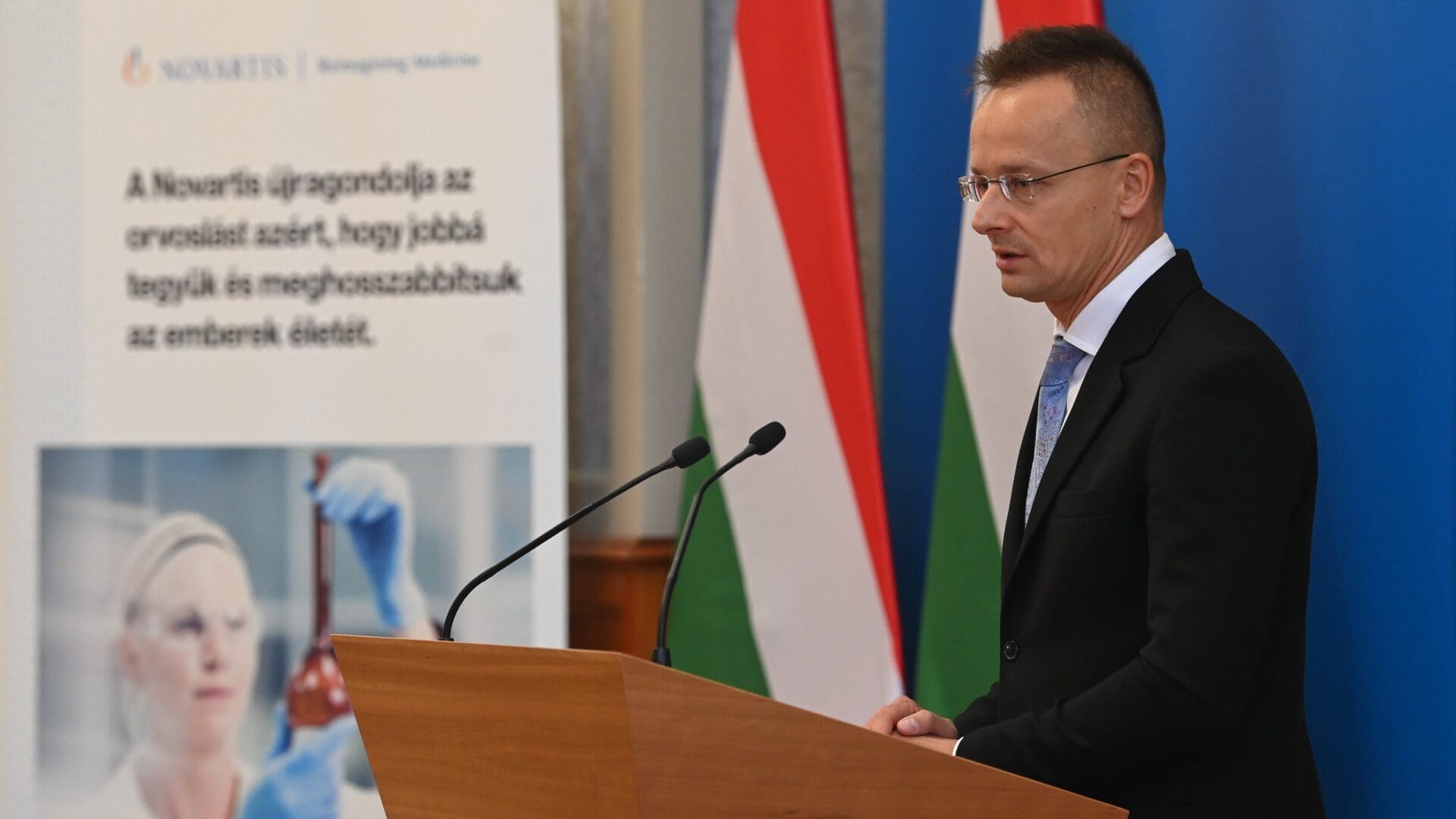‘The government is continuing to do everything in its power to ensure the international competitiveness of the Hungarian pharmaceutical industry, one result of which is that the sector’s performance has doubled over the past ten years,’ Minister of Foreign Affairs and Trade Péter Szijjártó said in Budapest on Friday, 5 May.
According to the Ministry’s statement, the minister welcomed Novartis’ announcement that the Swiss pharmaceutical company is establishing a new regional research and development centre in Budapest, from where it will coordinate its research projects in Southern Europe and Africa. The project will increase the number of research and development employees of the firm by 25 per cent.
‘This investment benefits the country, the economy, as the added value produced will continue to grow, but also patients who will have the opportunity to participate in Novartis’ clinical research programmes,’ he said. He added that the company, which employs more than 400 people in Hungary, is currently running 65 clinical trials, and over the past ten years, ten thousand Hungarian people have participated in such programmes.
Szijjártó emphasised that the world is experiencing a ‘time of crises and threats,’ with serious public health challenges and an intense race underway between the scientific community and viruses. ‘Based on the experience of recent years, it has become clear that the success of defence against epidemics and health challenges is fundamentally determined by the pharmaceutical capacities of individual countries,’ he pointed out.
‘Today, this has become a strategic capability, strategic knowledge, and a strategic asset. Therefore, the Hungarian government continues to do everything in its power to ensure further improvement of the international competitiveness of the Hungarian pharmaceutical industry and the competitive and innovation-stimulating environment required for this,’ he added.
He emphasised that the pharmaceutical industry is one of the pillars of the Hungarian economy,
with both domestic and foreign players, as evidenced by the fact that 23 major pharmaceutical investments have come to Hungary since 2014. The minister noted that the sector’s production value reached 1,200 billion HUF last year, which is a huge record and represents almost a doubling of the sector’s performance in ten years. During this period, the number of people working in the industry has increased by one and a half times, now exceeding 30,000. He stated that 87 per cent of the products produced are exported to 126 countries around the world. In terms of pharmaceutical exports, Hungary ranks 20th in the world, while in terms of population, it is only 95th, he informed.
He said that after last year’s 13 per cent growth, the value of bilateral trade between Hungary and Switzerland exceeded 2 billion EUR, which is a new record. Around 900 Swiss companies are operating in Hungary today, providing jobs to more than 30,000 people.
Novartis reminded in its statement sent to MTI on Friday that it has been committed for decades to supporting the development of healthcare systems in Hungary and the region, as well as to innovation in healthcare. The company, which maintains close partnerships with Hungarian medical universities, national healthcare centres, and county hospitals, has played an important role in conducting numerous clinical trials over the past ten years, typically in the areas of cardiovascular diseases, cancer, and rare diseases, all of which are leading causes of death. Novartis participates in approximately 100 clinical research programmes each year, involving more than a thousand domestic patients annually. The Swiss company finances the significant costs involved, including medications, tests, and diagnostics.








